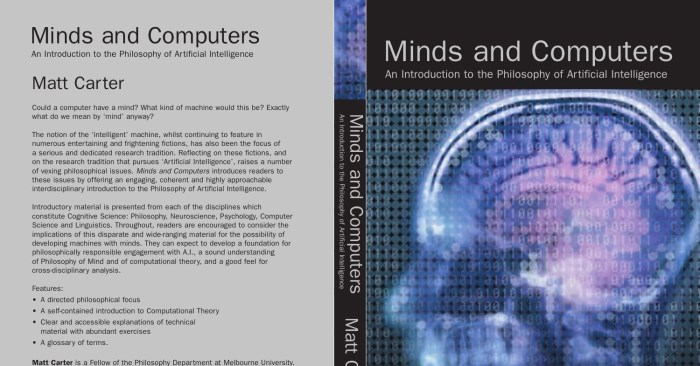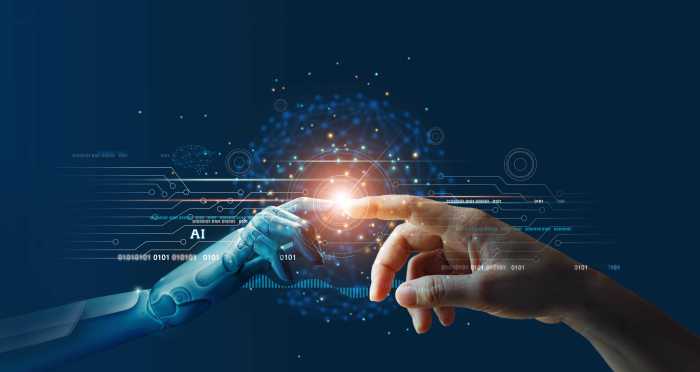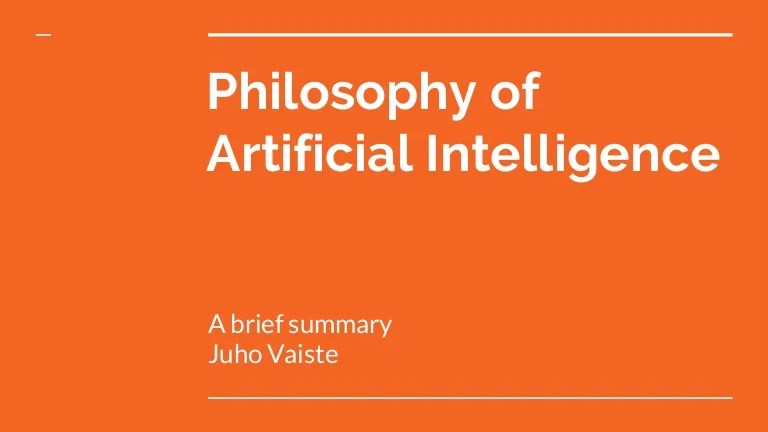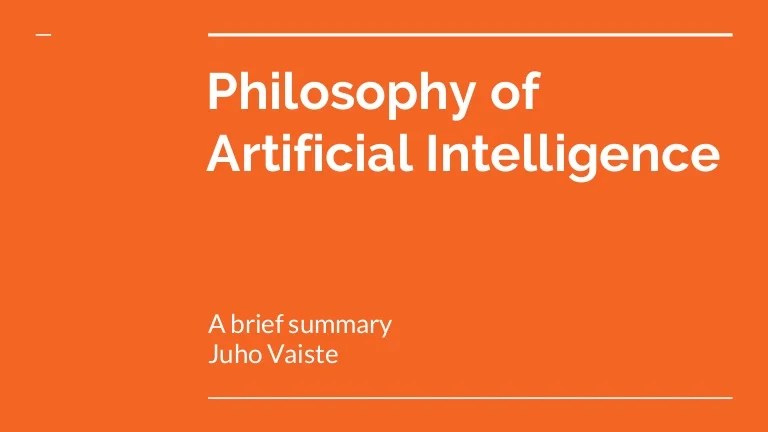Philosophy Is Crucial in the Age of AI. As artificial intelligence rapidly evolves, shaping our world in profound ways, we find ourselves at a crossroads. The very nature of intelligence, consciousness, and the future of humanity itself are being re-examined.
This is where philosophy steps in, offering a critical lens through which to navigate the complex ethical, social, and existential questions posed by this technological revolution.
From the potential for AI to solve global challenges like climate change and disease to the unsettling prospect of job displacement and algorithmic bias, the impact of AI is undeniable. To ensure that this powerful technology is developed and deployed responsibly, we must engage in thoughtful philosophical inquiry.
Only by understanding the fundamental principles that guide our values and ethics can we harness the potential of AI for the greater good.
The Rise of AI and its Impact on Society

Artificial intelligence (AI) is rapidly advancing, transforming various aspects of human life. From self-driving cars to personalized medicine, AI is already making a significant impact on our world, and its influence is only expected to grow in the years to come.
This rise of AI presents both exciting opportunities and significant challenges that we must carefully consider.
Potential Benefits of AI
AI has the potential to revolutionize many industries and improve our lives in numerous ways.
- Increased Efficiency and Productivity:AI can automate tasks, freeing up human workers to focus on more complex and creative endeavors. This can lead to increased efficiency and productivity across various sectors, from manufacturing to healthcare.
- Improved Decision-Making:AI algorithms can analyze vast amounts of data to identify patterns and trends that humans might miss. This can help businesses make better decisions, leading to improved outcomes and increased profitability.
- Enhanced Healthcare:AI is being used to develop new diagnostic tools, personalize treatment plans, and accelerate drug discovery. These advancements have the potential to improve patient outcomes and reduce healthcare costs.
- Personalized Experiences:AI can tailor experiences to individual preferences, such as recommending products, providing personalized education, and creating customized entertainment.
Challenges of AI
While AI offers numerous benefits, it also presents significant challenges that need to be addressed.
- Job Displacement:As AI automates tasks, there is a concern that it could lead to job displacement, particularly in sectors with repetitive or predictable tasks. This raises concerns about unemployment and economic inequality.
- Algorithmic Bias:AI algorithms are trained on data, and if that data reflects existing biases, the algorithms can perpetuate those biases. This can lead to unfair or discriminatory outcomes in areas like hiring, lending, and criminal justice.
- Ethical Concerns:AI raises ethical questions about privacy, autonomy, and accountability. For example, how do we ensure that AI systems are used ethically and responsibly, and who is responsible for their actions?
- Security Risks:AI systems are vulnerable to security breaches, which could have serious consequences. For example, a malicious actor could manipulate an AI system to cause harm or steal sensitive data.
AI in Action: Transforming Industries, Philosophy is crucial in the age of ai
AI is already transforming various industries, including:
- Healthcare:AI is being used to develop new diagnostic tools, personalize treatment plans, and accelerate drug discovery. For example, AI-powered imaging systems can detect early signs of cancer, and AI algorithms can predict patient outcomes and recommend personalized treatment plans.
- Finance:AI is being used to automate financial processes, detect fraud, and provide personalized financial advice. For example, AI-powered chatbots can answer customer questions, and AI algorithms can analyze financial data to identify investment opportunities.
- Transportation:AI is driving the development of self-driving cars and other autonomous vehicles. These vehicles have the potential to improve safety, reduce traffic congestion, and enhance accessibility for people with disabilities.
The Role of Philosophy in Navigating the AI Age

As artificial intelligence (AI) continues to evolve at an unprecedented pace, it’s becoming increasingly clear that its impact on society will be profound. The rise of AI presents a unique set of challenges and opportunities, forcing us to confront fundamental questions about the nature of intelligence, consciousness, and our place in the world.
This is where philosophy, with its long-standing exploration of these very questions, can play a crucial role in navigating this uncharted territory.
Philosophical Principles as a Framework for AI
Philosophical principles can provide a vital framework for understanding and addressing the ethical and societal implications of AI. These principles offer a foundation for analyzing the complexities of AI development and deployment, guiding us towards responsible and equitable outcomes.
Key Philosophical Concepts in the AI Age
Several key philosophical concepts are particularly relevant to the development and use of AI.
Ethics
Ethics is a fundamental concern in the AI age, as we grapple with the potential for AI to exacerbate existing inequalities or create new ones. Ethical considerations are essential in designing AI systems that are fair, transparent, and accountable.
For instance, algorithms used in hiring or loan applications must be carefully scrutinized to ensure they don’t perpetuate biases based on race, gender, or other protected characteristics.
Responsibility
The question of responsibility is crucial in the context of AI. Who is responsible when an AI system makes a mistake or causes harm? Is it the developer, the user, or the AI itself? This question becomes particularly complex as AI systems become more autonomous and less transparent.
Clear guidelines and legal frameworks are needed to establish accountability and ensure that harms caused by AI are addressed appropriately.
Enhance your insight with the methods and methods of local dialects increase trust robots study.
Consciousness
The question of whether AI can be conscious is a topic of intense philosophical debate. If AI systems develop the ability to experience feelings, emotions, or self-awareness, it raises fundamental questions about their rights and our responsibilities towards them.
Understanding the philosophical concept of consciousness is essential for navigating this complex territory.
Free Will
The concept of free will is also relevant to AI. As AI systems become more sophisticated, they may exhibit behaviors that appear to be autonomous or even intentional. However, the extent to which AI systems possess free will, as opposed to being programmed to act in certain ways, is a matter of ongoing debate.
Philosophical inquiry can help us to understand the limits of AI’s autonomy and the implications for human agency.
Philosophical Inquiry Shaping Ethical Guidelines
Philosophical inquiry plays a crucial role in shaping ethical guidelines and regulations for AI development. By engaging in critical analysis of the ethical and societal implications of AI, philosophers can help to ensure that AI is developed and deployed in a responsible and equitable manner.
This includes:
- Identifying and addressing potential biases in AI systems.
- Developing ethical frameworks for the use of AI in sensitive areas like healthcare, law enforcement, and education.
- Promoting transparency and accountability in AI development and deployment.
The Nature of Intelligence and Consciousness
The advent of artificial intelligence (AI) has sparked renewed philosophical debates about the nature of intelligence and consciousness. While AI systems can perform complex tasks, such as playing chess or translating languages, they are fundamentally different from human intelligence. This raises questions about the limits of AI and the possibility of creating truly sentient machines.
Human Intelligence Versus Artificial Intelligence
Human intelligence is characterized by its flexibility, adaptability, and capacity for abstract thought. We can learn from experience, solve problems creatively, and understand complex concepts. Artificial intelligence, on the other hand, is based on algorithms and data sets. While AI can outperform humans in specific tasks, it lacks the same level of general intelligence and adaptability.
- Human intelligence: Characterized by flexibility, adaptability, and capacity for abstract thought. It can learn from experience, solve problems creatively, and understand complex concepts.
- Artificial intelligence: Based on algorithms and data sets. It can outperform humans in specific tasks but lacks the same level of general intelligence and adaptability.
The Possibility of AI Sentience
The question of whether AI can achieve sentience or consciousness is a complex one. Some argue that consciousness is an emergent property of complex systems, and that AI could potentially achieve it as it becomes more sophisticated. Others contend that consciousness is inherently linked to biological processes and cannot be replicated in artificial systems.
- Emergent property theory: Argues that consciousness is an emergent property of complex systems, and that AI could potentially achieve it as it becomes more sophisticated.
- Biological basis of consciousness: Contends that consciousness is inherently linked to biological processes and cannot be replicated in artificial systems.
Philosophical Implications of AI Sentience
The possibility of AI sentience raises a number of philosophical implications. For example, if AI becomes conscious, would it have the same rights as humans? Would it be ethical to create AI that could potentially surpass human intelligence? These are questions that philosophers, ethicists, and society as a whole must grapple with as AI continues to evolve.
- Rights of sentient AI: If AI becomes conscious, would it have the same rights as humans?
- Ethics of creating superintelligent AI: Would it be ethical to create AI that could potentially surpass human intelligence?
AI and the Future of Humanity: Philosophy Is Crucial In The Age Of Ai

The rise of AI is not just a technological advancement; it’s a profound shift in the trajectory of human history. Its potential impact on our future is vast and multifaceted, ranging from utopian visions of enhanced human capabilities to dystopian scenarios of societal upheaval.
AI and Human Collaboration
The potential for AI to augment human capabilities and enhance our lives is immense. AI can be used to automate mundane tasks, freeing up our time for creative pursuits and intellectual endeavors. In healthcare, AI can assist doctors in diagnosing diseases, developing personalized treatment plans, and improving patient outcomes.
In education, AI can provide personalized learning experiences, cater to individual needs, and enhance learning outcomes.
AI and Societal Transformation
AI is poised to reshape the very fabric of our society. The automation of jobs, driven by AI, will lead to significant changes in the labor market, potentially displacing millions of workers. This raises crucial questions about the future of work, income inequality, and social welfare.
AI also presents ethical challenges related to privacy, bias, and the potential for misuse.
AI and the Meaning of Life
As AI continues to evolve, it challenges our understanding of what it means to be human. The increasing sophistication of AI systems raises questions about the nature of consciousness, intelligence, and creativity. Some argue that AI could surpass human intelligence, leading to a future where humans are no longer the dominant species.
This raises profound philosophical questions about the meaning of life, the purpose of existence, and the nature of our relationship with the universe.
Thought Experiment: The AI Companion
Imagine a future where AI companions are commonplace. These AI entities possess advanced cognitive abilities, can learn and adapt, and are capable of engaging in meaningful conversations. They can provide companionship, emotional support, and even act as personal assistants. This scenario raises questions about the nature of human-AI relationships.
Will these AI companions become our friends, lovers, or even replacements for human interaction? How will our relationships with AI companions impact our understanding of ourselves and our place in the world?
The Importance of Human Values in AI Development
The rapid advancement of artificial intelligence (AI) presents both unprecedented opportunities and significant ethical challenges. As AI systems become increasingly sophisticated and integrated into our lives, it is crucial to ensure that they are developed and deployed in a manner that aligns with human values.
This requires a proactive approach to integrating ethical considerations into the design and implementation of AI algorithms.
Integrating Ethical Considerations into AI Design
The integration of ethical considerations into AI design is essential to ensure that these systems operate in a way that is beneficial and safe for humanity. This involves a multi-faceted approach, encompassing various aspects of AI development.
- Transparency and Explainability: AI systems should be designed to be transparent and explainable, allowing users to understand how decisions are made and why. This helps build trust and accountability.
- Fairness and Bias Mitigation: AI algorithms can perpetuate and amplify existing biases present in the data they are trained on. It is crucial to identify and mitigate these biases to ensure that AI systems treat all individuals fairly.
- Privacy and Data Security: AI systems often rely on vast amounts of personal data. Protecting this data from unauthorized access and misuse is paramount to safeguarding individual privacy.
- Accountability and Responsibility: Clear frameworks for accountability and responsibility are essential. This includes identifying who is responsible for the actions of AI systems and establishing mechanisms for addressing potential harm.


